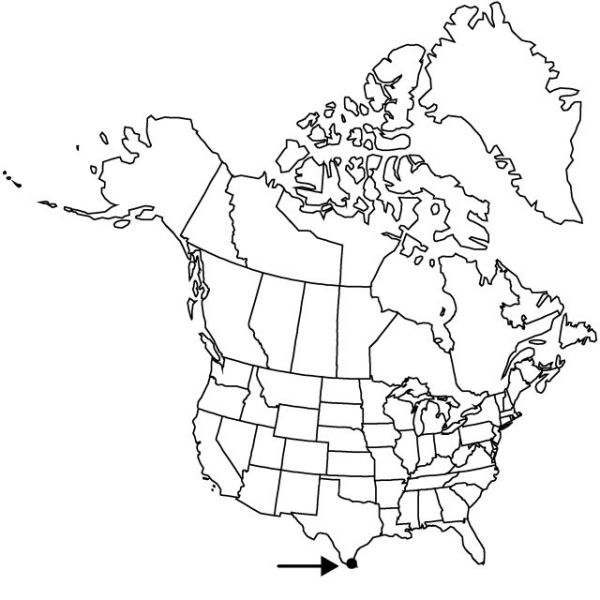Manfreda longiflora
Baileya 19: 163. 1975.
Rhizomes cylindrical. Leaves spreading, succulent, to 26.5 × 1.4 cm; blade green with darker green or brown narrowly elongate spots, channeled, lanceolate, margins with coarse, distantly spaced, cartilaginous teeth. Scape to 3 dm (–6 dm in cultivation). Inflorescences dense or lax, 0.8–2(–3.5) dm, 10–21-flowered. Flowers semierect, sessile; tepals white, maturing to rose; perianth tube narrowly funnelform, 2.3–3.6 cm; limb lobes recurved, 0.8–1.9 × 0.2–0.35 cm; filaments included, attached at top of tube; anthers nearly sessile; ovary 4–6 mm; style included, 1.4–2.8 cm; stigma white, deeply 3-lobed, lobes reflexed. Capsules depressed-globose, 1 × 1–1.3 cm. 2n = 60.
Phenology: Flowering late summer–early fall.
Habitat: Clay slopes, dry gravelly hills or sandy prairies
Elevation: 0–100 m
Distribution

Tex., Mexico (Tamaulipas).
Discussion
Of conservation concern.
Selected References
None.